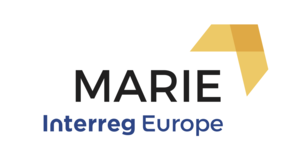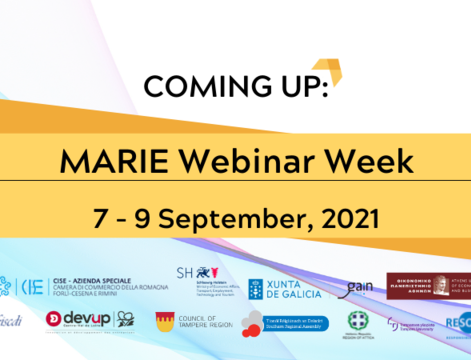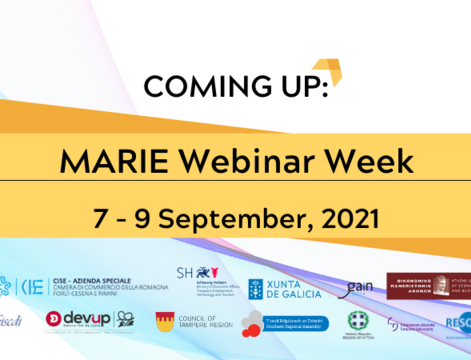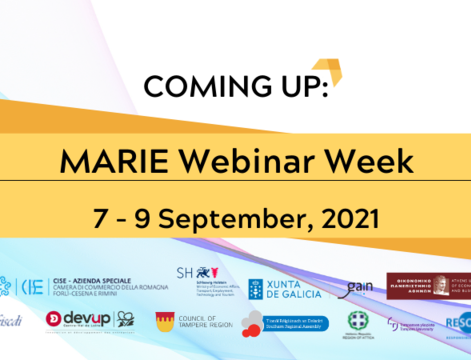Our fabulous team from Athens University of Economics and Business – Research Centre (AUEB-RC) has just prepared the report on the Enterprise Survey carried out by MARIE partners. You can download the full report from our webpage.
AUEB-RC not only prepared the report, after codifying data from all 8 MARIE regions, they also designed the survey that MARIE partners used to interview 23 companies.
MARIE looks at regional public policy that supports delivery of Responsible Research and Innovation (RRI) to enterprises’ product, process and service design, production and distribution. The Enterprise Survey is a key part of this work. It was designed to get feedback from the ground: from the enterprises that can and must driver Responsible Innovation and that represent the beneficiaries of public policy for research, development and innovation. Only by understanding the needs and the strengths of the regional enterprise fabric, can we make relevant improvements to policy.
So what did our partners find out? Here is a snapshot of some conclusions:
- Drivers motivating enterprises to experiment with RRI come both from within the company (e.g., organisational culture, recognition of a business opportunity, need to provide benefits to end users / society) and from the external environment (external funding, technological trend).
- Stakeholders involved in and benefiting from company RRI are both internal (i.e., the company, its funders / shareholders, and its employees) and, mainly, external (end users, research community, local community, broader society).
- The majority of RRI initiatives being shared were considered to be successful or partially successful, with success being measured in terms of business indicators, academic / research indicators, reach indicators and recognition indicators.
- The main enablers for the development and implementation of RRI in the companies were organisational enablers from within the company (collaborative culture, market orientation, diversity and complementarity of skills, trust etc.) and partnerships / synergies formed by the company, suggesting that the company should be RRI-oriented from the outset. External enablers include financial, technological and institutional.
- Main barriers to RRI again include internal barriers such as lack of resources, an organisational culture that does not foster RRI, lack of trust, centralisation of power and lack of autonomy, difficulties in attracting the right people. External barriers include bureaucracy, scepticism and legal issues.
Read the report for full details!
Photo by RawPixel on Unsplash.










